
Samos: The Emerald Gem of the Aegean
Samos, an enchanting island in the Aegean Sea, offers a perfect mix of natural beauty, rich history, and vibrant culture. With its lush green landscapes, pristine beaches, and crystal-clear waters, Samos is a paradise for nature lovers and beach enthusiasts. The island is also famous for its vineyards and the production of sweet Muscat wine, which you can taste in many local tavernas and wineries. History buffs will find Samos a treasure trove of ancient sites and monuments. The island is the birthplace of the great mathematician Pythagoras and is home to the Heraion, a sanctuary dedicated to the goddess Hera, which is a UNESCO World Heritage site. The Tunnel of Eupalinos, an ancient aqueduct, showcases the island's advanced engineering skills from the 6th century BC. The Archaeological Museum in Samos Town offers a deep dive into the island's past, with artifacts dating back thousands of years. The island's charming villages, such as Kokkari and Pythagoreio, are perfect for leisurely strolls. You'll find traditional architecture, cozy cafes, and friendly locals who are always ready to share stories and recommendations. Samos also offers a variety of outdoor activities, from hiking in its mountainous interior to water sports along its sandy shores. Whether you're looking to relax or explore, Samos provides an unforgettable experience.
Local tips in Samos
- Visit the Heraion early in the morning to avoid crowds and heat.
- Try the local Muscat wine at a traditional taverna or winery.
- Bring comfortable shoes for walking, as many attractions are best explored on foot.
- Take a boat trip to explore the hidden coves and beaches around the island.
- Check the local event calendar for traditional festivals and cultural events during your stay.
Samos: The Emerald Gem of the Aegean
Samos, an enchanting island in the Aegean Sea, offers a perfect mix of natural beauty, rich history, and vibrant culture. With its lush green landscapes, pristine beaches, and crystal-clear waters, Samos is a paradise for nature lovers and beach enthusiasts. The island is also famous for its vineyards and the production of sweet Muscat wine, which you can taste in many local tavernas and wineries. History buffs will find Samos a treasure trove of ancient sites and monuments. The island is the birthplace of the great mathematician Pythagoras and is home to the Heraion, a sanctuary dedicated to the goddess Hera, which is a UNESCO World Heritage site. The Tunnel of Eupalinos, an ancient aqueduct, showcases the island's advanced engineering skills from the 6th century BC. The Archaeological Museum in Samos Town offers a deep dive into the island's past, with artifacts dating back thousands of years. The island's charming villages, such as Kokkari and Pythagoreio, are perfect for leisurely strolls. You'll find traditional architecture, cozy cafes, and friendly locals who are always ready to share stories and recommendations. Samos also offers a variety of outdoor activities, from hiking in its mountainous interior to water sports along its sandy shores. Whether you're looking to relax or explore, Samos provides an unforgettable experience.
When is the best time to go to Samos?
Iconic landmarks you can’t miss
Livadaki Beach bar Samos
Discover Livadaki Beach: Samos's hidden paradise with turquoise waters, a vibrant beach bar, and unforgettable Aegean views.
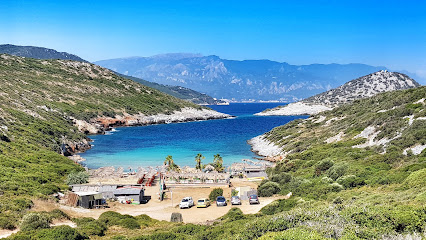
Potami Waterfalls
Discover Samos' hidden gem: Hike to the refreshing Potami Waterfalls near Karlovasi for a unique blend of nature and adventure.
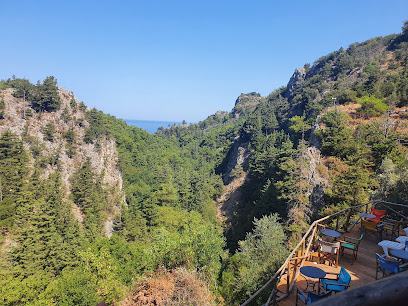
Navagos Beach Bar
Experience the ultimate all-day beach destination at Navagos Beach Bar on Samos, where turquoise waters meet vibrant entertainment and relaxation.
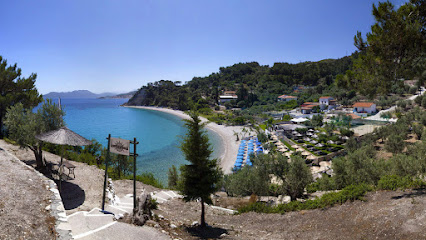
Tunnel of Eupalinos
Explore an ancient marvel of engineering: the Tunnel of Eupalinos, a 6th-century BC aqueduct on the Greek island of Samos.
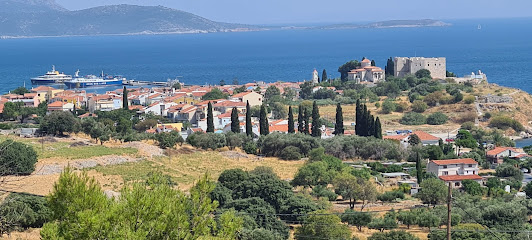
The Blue Street
Discover the enchanting Blue Street in Pythagoreio, Samos: a vibrant alleyway offering picturesque views and a taste of Greek culture.
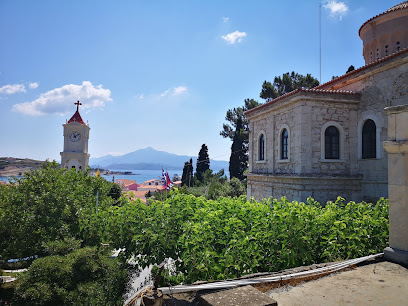
Pythagoras Cave
Discover the legendary refuge of Pythagoras on Samos, a cave steeped in history, mystery, and breathtaking Aegean scenery.
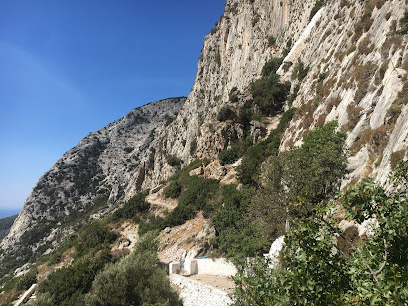
Archaeological Site at Heraion of Samos
Explore the ancient sanctuary of Hera on Samos, a UNESCO World Heritage Site with monumental ruins and rich history dating back to the Bronze Age.
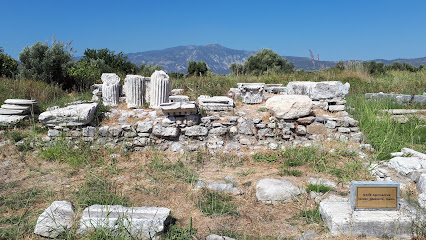
Panagia Spiliani Monastery
Discover a unique cave monastery near Pythagorio, Samos, with stunning views, a miraculous icon, and a rich history dating back to ancient times.
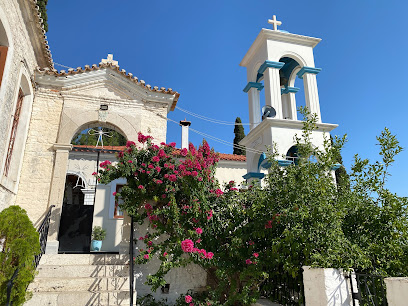
Archaeological Museum of Vathy, Samos
Discover Samos' ancient past at the Archaeological Museum of Vathy, home to the colossal Kouros and a wealth of historical treasures.
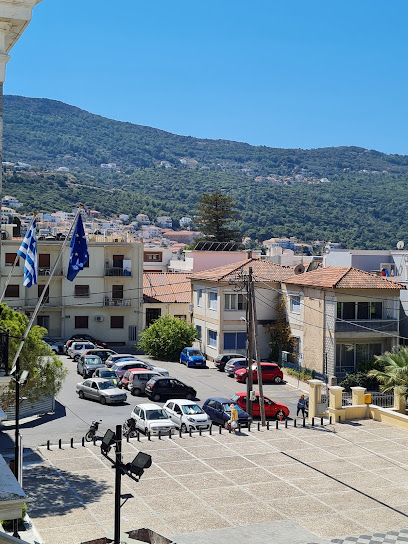
Mare Deus Beach
Experience the vibrant Mare Deus Beach in Pythagoreio, Samos: golden sands, clear waters, lively entertainment, and historical charm await!
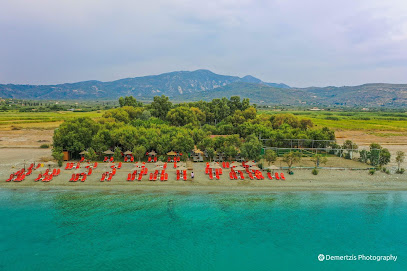
Statue of Pythagoras
Visit the Statue of Pythagoras in Samos, Greece, to honor the legendary philosopher and enjoy breathtaking Aegean vistas.
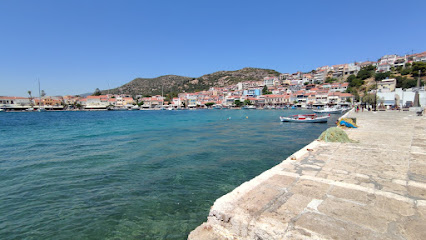
Archaeological Museum of Pythagoreion
Explore 3,000 years of Samos history, from Neolithic settlements to Roman emperors, at this captivating archaeological museum in Pythagoreion.
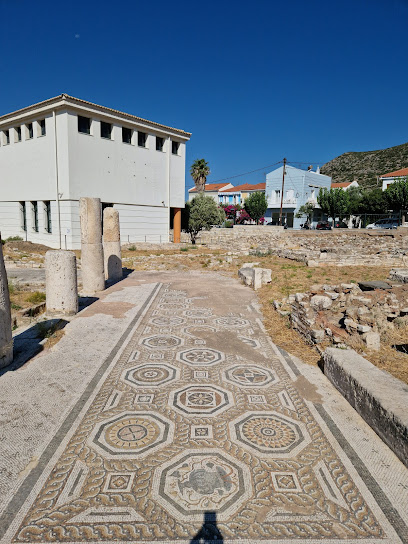
Kerveli Beach
Escape to the tranquil beauty of Kerveli Beach in Samos: crystal-clear waters, serene surroundings, and a perfect spot for relaxation and swimming.
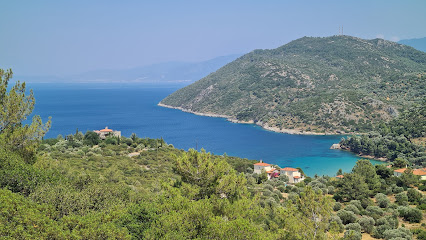
Samos Wine Museum
Discover the history and tradition of Samos wine at this fascinating museum, showcasing the island's unique winemaking heritage and Muscat wines.
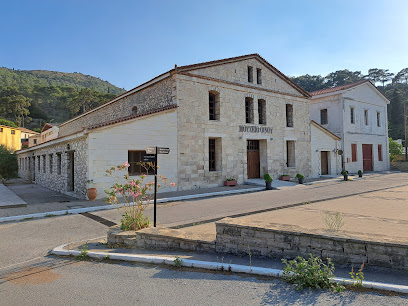
Mourtiá Beach
Escape to the tranquil shores of Mourtiá Beach in Samos, where crystal-clear waters meet lush greenery for a serene retreat.
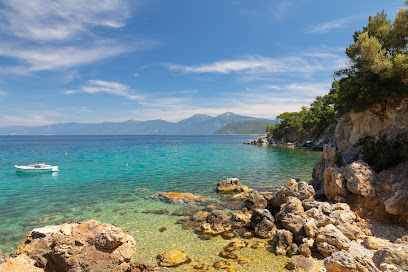
Unmissable attractions to see
Ephesus Archaeological Museum
Explore the Ephesus Archaeological Museum, a captivating insight into ancient history with stunning artifacts from one of Turkey's most significant archaeological sites.
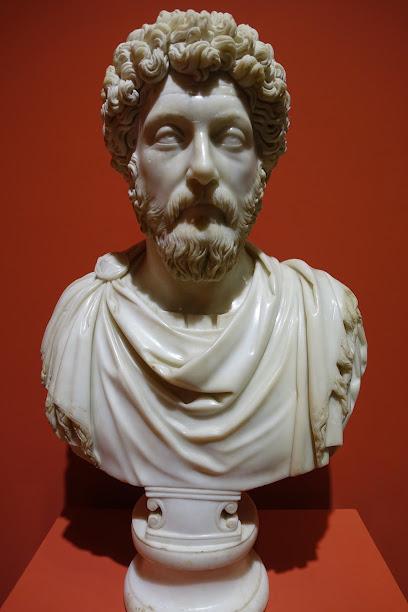
Ladies Beach
Discover the beauty of Ladies Beach in Kuşadası, Turkey, where golden sands and vibrant beach life create the ultimate Mediterranean escape.
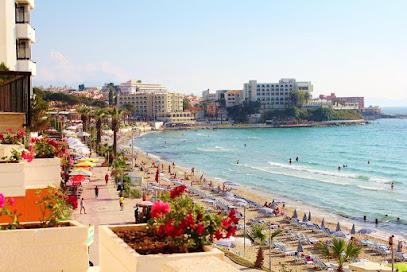
Ephesus Ancient Greek Theatre
Discover the Ephesus Ancient Greek Theatre, a breathtaking historical landmark showcasing the grandeur of ancient Greece and its architectural brilliance.
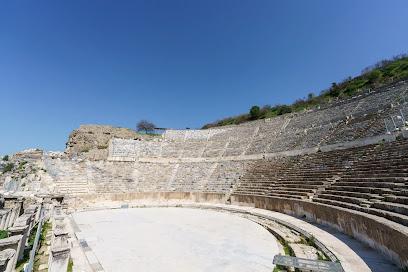
Ephesus Archaeological Site
Explore the Ephesus Archaeological Site, a UNESCO World Heritage site, and immerse yourself in the wonders of ancient Roman civilization.
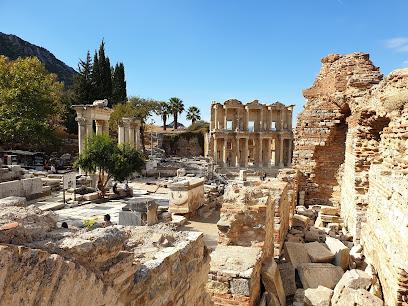
Temple of Apollo
Discover the majestic Temple of Apollo in Didim, an ancient wonder that showcases the rich history and stunning architecture of the Greek civilization.
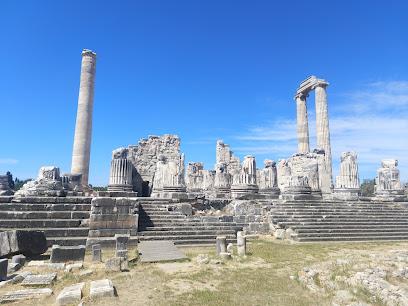
Library of Celsus
Explore the Library of Celsus in Selçuk, Turkey, a stunning ancient site that embodies the beauty and knowledge of the Hellenistic era.

Zeus Cave
Explore Zeus Cave in Kuşadası, a stunning historical landmark steeped in mythology and natural beauty, perfect for adventure and tranquility.
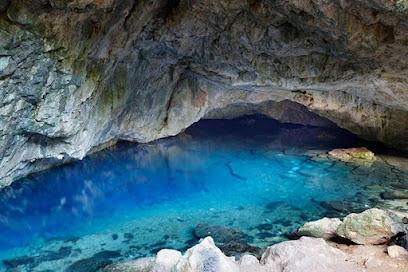
House of Virgin Mary
Experience spiritual tranquility at the House of Virgin Mary, a historical shrine nestled in the beautiful hills of Selçuk, Turkey.
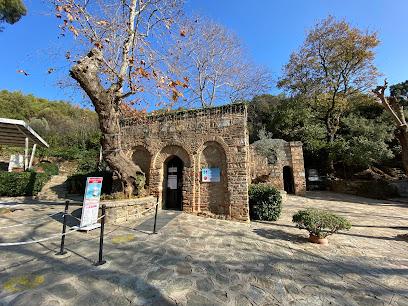
The Temple of Artemis
Explore the Temple of Artemis, a magnificent historical landmark and one of the Seven Wonders of the Ancient World in Selçuk, Turkey.
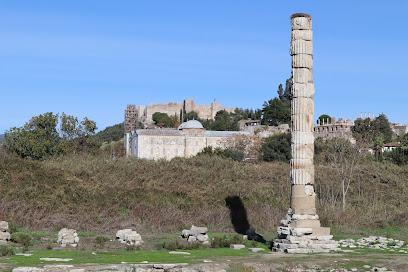
Cave of the Seven Sleepers
Explore the Cave of the Seven Sleepers, a historical landmark in Selçuk, steeped in legend and surrounded by breathtaking natural beauty.
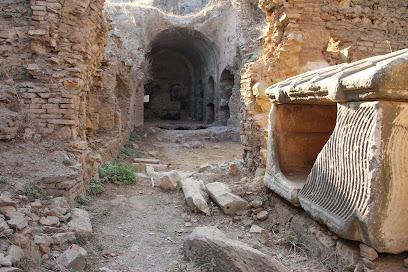
Çamlık Steam Locomotives Open Air Museum
Explore the Çamlık Steam Locomotives Open Air Museum, a captivating tribute to Turkey's railway history, nestled in the heart of Selçuk.

Setur Kusadasi Marina
Discover the enchanting Setur Kusadasi Marina, a vibrant haven for relaxation and adventure on the stunning Aegean coast.
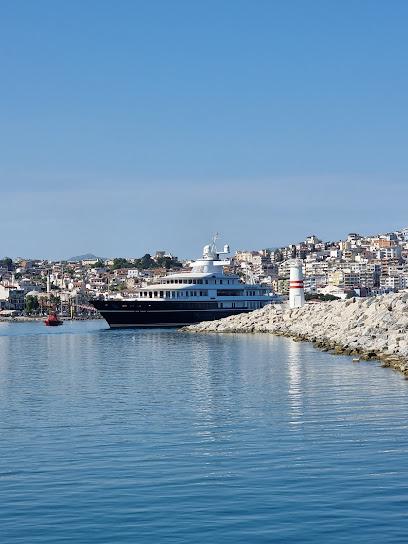
Basilica of Saint John
Explore the Basilica of Saint John in Selçuk, a magnificent historical landmark steeped in Byzantine architecture and early Christian heritage.
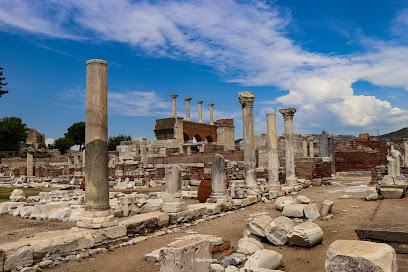
İsa Bey Mosque
Discover the architectural beauty and serene atmosphere of İsa Bey Mosque, a historical gem in Selçuk, İzmir, offering a glimpse into the region's rich heritage.
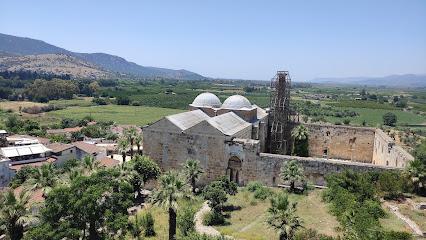
Lake Bafa
Discover the natural splendor of Lake Bafa, a tranquil retreat in Turkey known for its stunning landscapes and rich biodiversity.
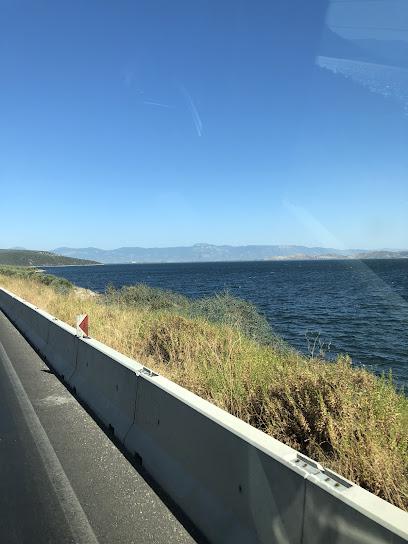
Essential places to dine
Orizontas
Experience authentic Mediterranean flavors at Orizontas in Samos - where every meal is a celebration of Greek culinary tradition.
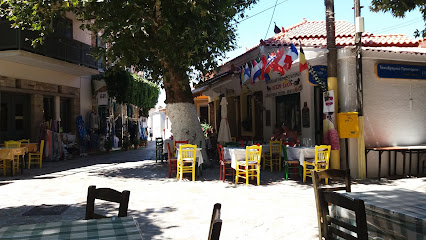
Trata Samos Restaurant
Discover authentic Mediterranean flavors at Trata Samos Restaurant in beautiful Ormos Marathokampou, famous for its fresh seafood and welcoming ambiance.
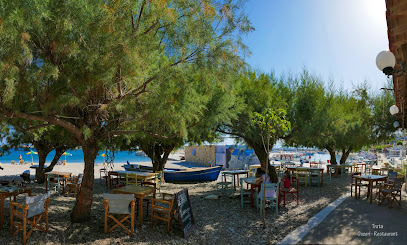
Meltemi Restaurant
Experience authentic Greek cuisine at Meltemi Restaurant in Kokkari – where every meal is a celebration of flavor and tradition.
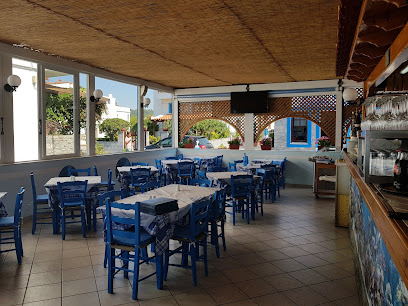
Elia Restaurant
Discover authentic Greek cuisine at Elia Restaurant in Pythagorio, Samos Island - where tradition meets breathtaking Aegean views.
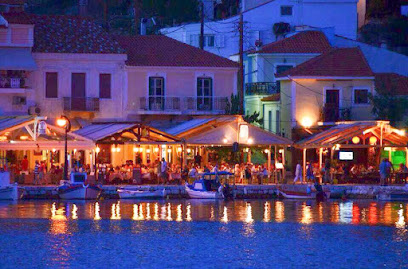
Cavos Cafe Bar Bistro
Discover the delightful flavors and vibrant atmosphere at Cavos Cafe Bar Bistro in Kokkari - where every meal is a celebration!
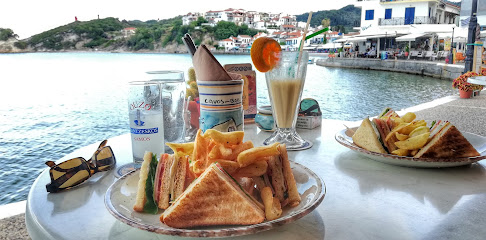
Pizza Di Piazza
Experience authentic Italian pizza made with fresh ingredients at Pizza Di Piazza in Samos – a must-visit culinary destination!
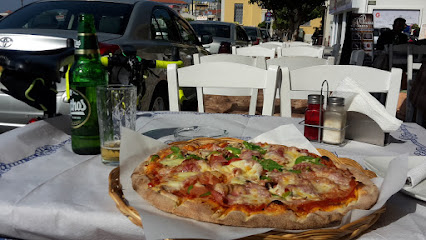
Asterias Seaside Experience
Discover authentic Italian flavors at Asterias Seaside Experience in Samos - where delicious pizzas meet breathtaking seaside views.
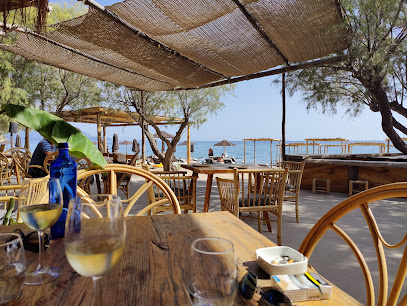
MERMIZELI
Discover Mermizeli in Pythagoreio: A delightful culinary journey through authentic Greek flavors and warm hospitality.
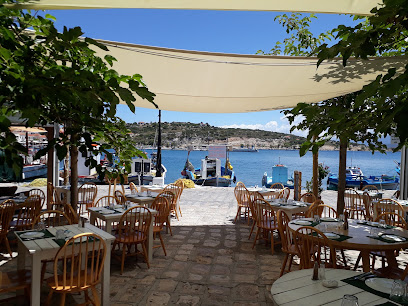
Four Seasons Restaurant
Experience authentic Greek flavors at Four Seasons Restaurant in Pythagoreio—where culinary tradition meets modern dining.
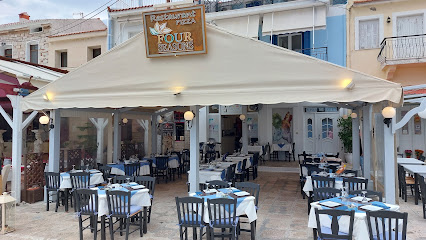
Kampos grill
Discover authentic Greek flavors at Kampos Grill in Kámbos Marathokámpou - where great food meets welcoming ambiance.
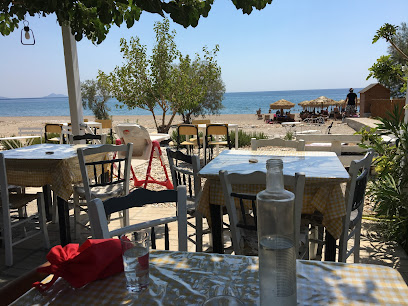
Irodion Garden Restaurant
Experience authentic Greek flavors amidst lush gardens at Irodion Garden Restaurant in Pythagorio.
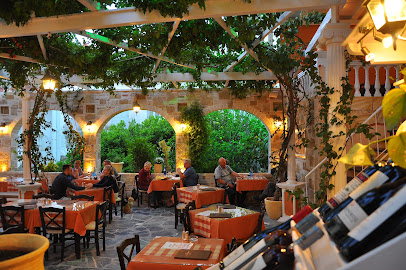
La Bussola
Discover authentic Greek cuisine in Kokkari at La Bussola – where every dish tells a story.
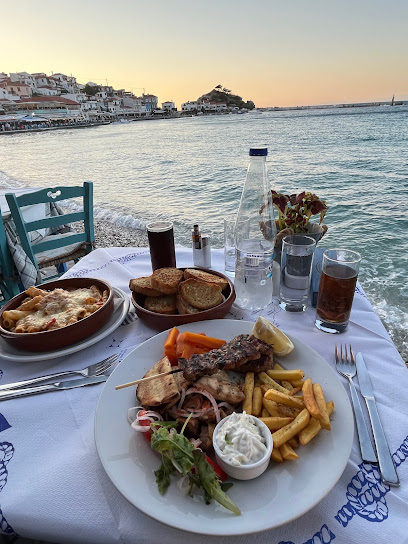
Restaurant Snack Bar Κουζίνα
Discover the flavors of Greece at Restaurant Snack Bar Κουζίνα in Samos - where traditional cuisine meets warm hospitality.
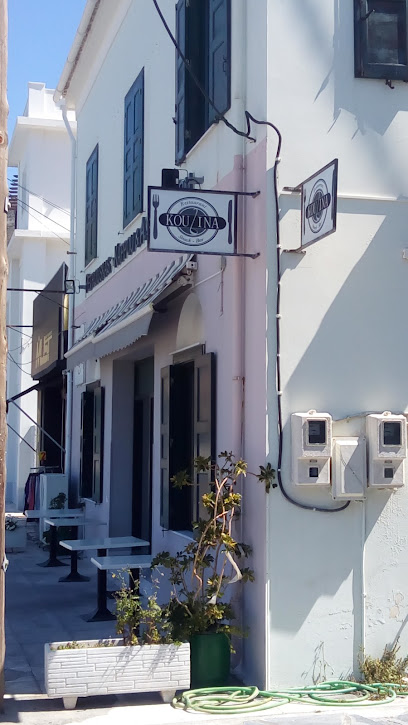
Joanna Restaurant & Pizza
Discover authentic Greek flavors and delicious pizzas at Joanna Restaurant & Pizza in Kambos Marathokampos – a family-friendly dining gem.
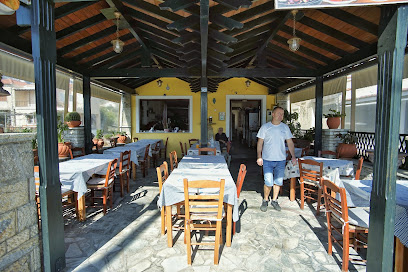
Almyriki
Experience authentic Greek cuisine at Almyriki in Ψιλή Άμμος, where fresh ingredients meet breathtaking seaside views.
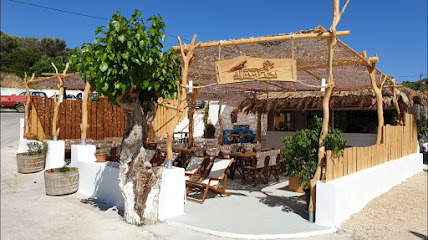
Markets, malls and hidden boutiques
Hondos Center
Explore a diverse shopping experience at Hondos Center in Samos, where local culture meets international brands in a vibrant atmosphere.
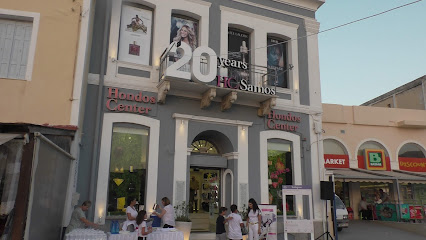
Perfumes Charisma
Explore the enchanting world of fragrances and cosmetics at Perfumes Charisma in Samos, Greece, where beauty meets elegance.
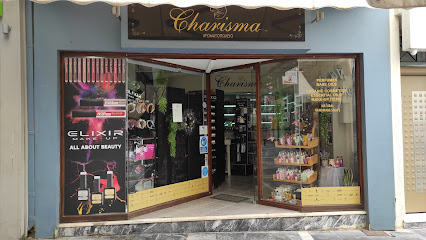
Pink Woman Samos
Explore the latest women's fashion at Pink Woman Samos, where style meets quality in a vibrant shopping experience.
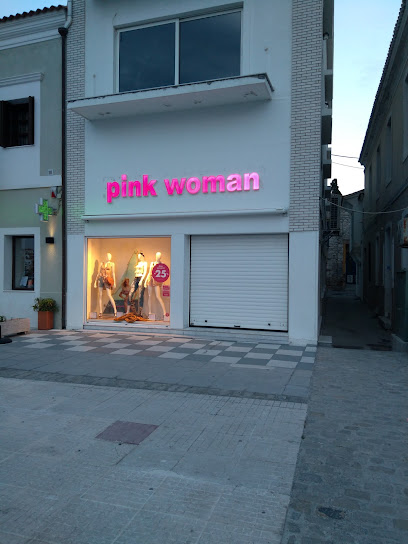
Carousel
Explore the Carousel in Samos for all your home improvement needs; quality products and expert advice await you.
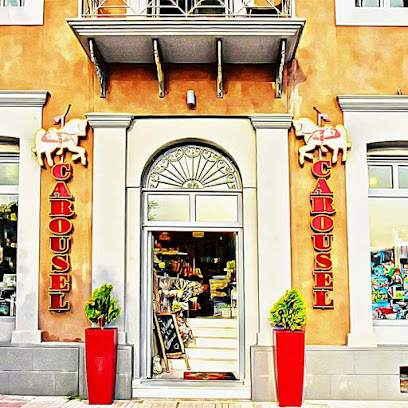
Flower shop - Gift shop IASMOS Samos
Experience the beauty of Samos through flowers and unique gifts at IASMOS, your go-to florist and gift shop on the island.
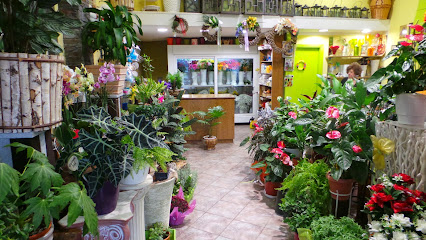
INSPIRE-HOME KAPLANTZIS SAMOS
Explore Inspire-Home Kaplantzis, Samos for unique furniture that reflects local culture and enhances your home with style and elegance.

SAMOSHOP.GR
Discover unique souvenirs and local crafts at Samoshop.gr in Pythagoreio, the perfect spot to bring home the essence of Samos Island.
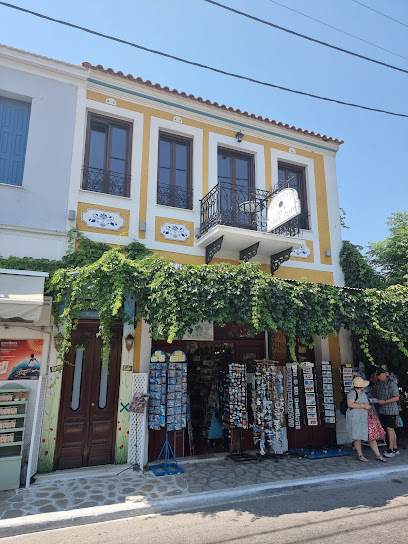
2The Little store
Explore the stylish offerings at 2The Little Store in Pythagoreio, where fashion meets the charm of Greece’s rich heritage.
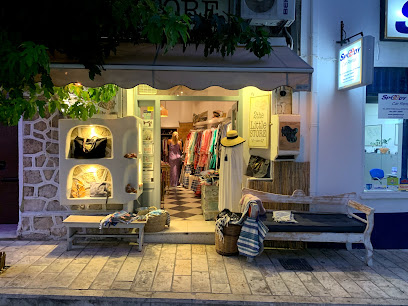
Το Σπιτικό - VICKO
Explore the charm of Samos at Το Σπιτικό - VICKO, where local craftsmanship meets modern elegance in home goods.
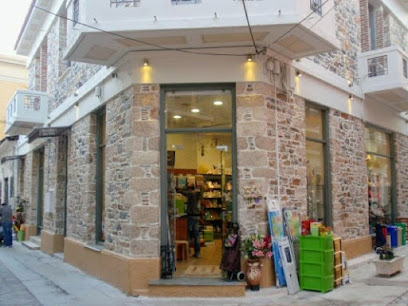
Moustaka - Manoliadou Sofia
Discover unique women's clothing and stylish dresses at Moustaka in Samos, where fashion meets local charm and warmth.
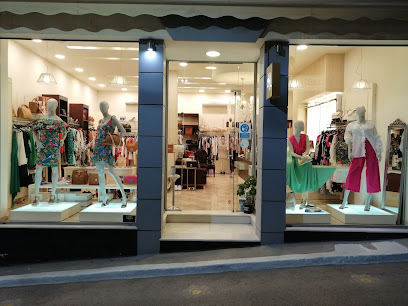
The Body Shop Σάμος
Explore The Body Shop in Samos for eco-friendly cosmetics and unique novelty items that celebrate sustainable beauty.
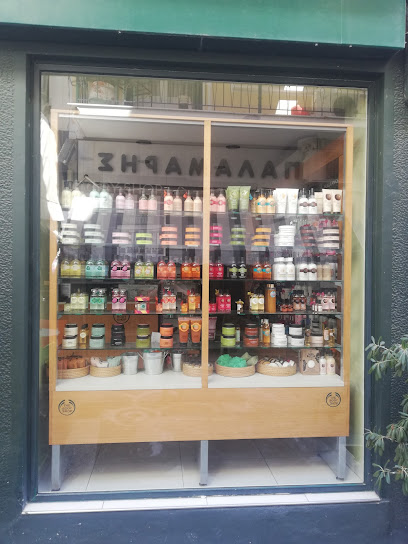
The grocery store in the square
Experience the local flavors of Samos at the charming grocery store in the square, where tradition meets fresh produce.
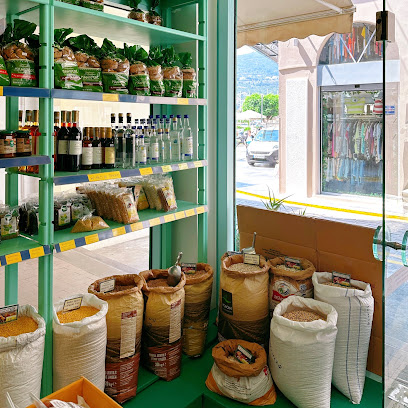
Active Sportswear , sportsandsupplements.gr
Discover top-notch fitness apparel at Active Sportswear in Samos, where quality meets style for every active lifestyle.

Βότανα - Αιθέρια έλαια Κληρονόμου
Explore the rich aromas of Greek herbs and essential oils at Βότανα - Αιθέρια έλαια Κληρονόμου, a unique herb shop in Κουμαραδαίοι.
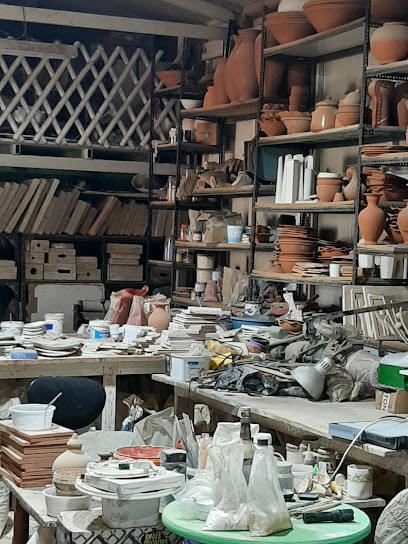
Σαραντίδης Ανέστης Ένδυση & Οικία
Explore the finest fashion at Σαραντίδης Ανέστης Ένδυση & Οικία, where local charm meets contemporary style in Samos.
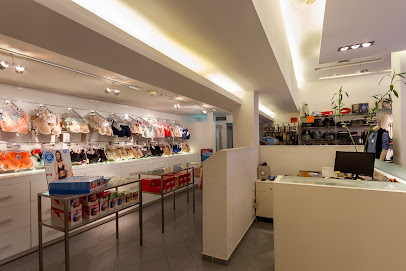
Essential bars & hidden hideouts
Navagos Beach Bar
Discover Navagos Beach Bar, a vibrant spot on Tsamadou Beach, offering delicious cocktails and stunning sea views for a perfect day in Samos.
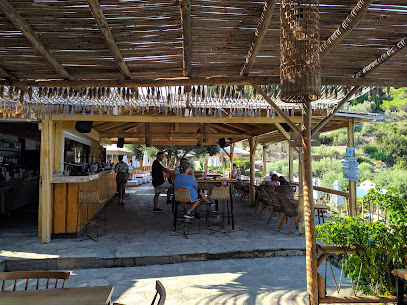
Cavos Cafe Bar Bistro
Discover the perfect blend of Mediterranean flavors and stunning views at Cavos Cafe Bar Bistro in Kokkari, Greece.
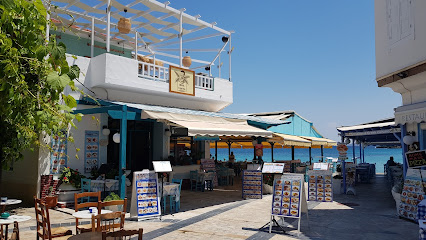
Solid All day spot
Discover the perfect blend of relaxation and local flavor at Solid All Day Spot, a top cocktail bar and café in Samos, Greece.
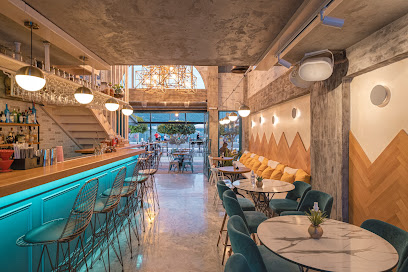
Hippy's Restaurant Beach Bar
Discover the vibrant ambiance and delicious cuisine at Hippy's Restaurant Beach Bar, your perfect seaside retreat in Παραλία Ποτάμι.
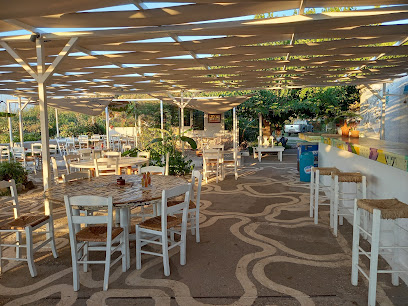
Corner Bar
Experience the vibrant ambiance of The Corner Bar in Pythagoreio, where exceptional cocktails and espresso meet the heart of Greek nightlife.
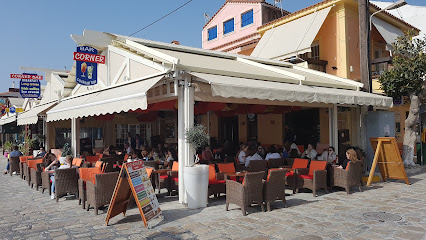
Asteria Beach Pythagoreio
Experience the serene beauty of Asteria Beach Pythagoreio, where relaxation meets vibrant beach life on the stunning Aegean coast.
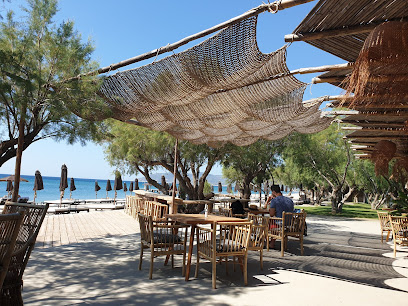
Boa Vista music-cocktail bar
Discover the lively ambiance and exquisite cocktails at Boa Vista Music-Cocktail Bar in Kokkari, a perfect blend of music and Mediterranean charm.
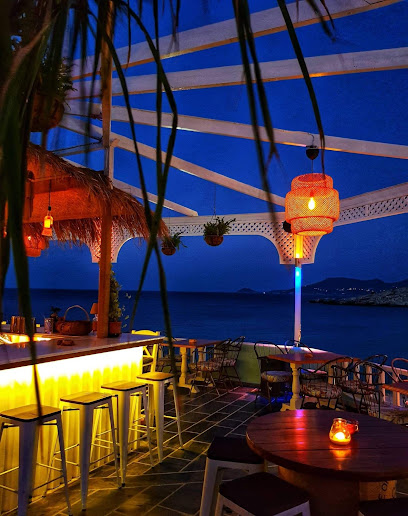
Cafe Del Mar
Experience the enchanting atmosphere and exquisite cocktails at Cafe Del Mar in Kokkari, the perfect retreat for relaxation and stunning seaside views.
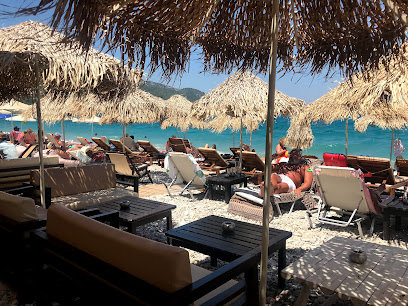
Mocambo Beach Bar
Discover the vibrant atmosphere and delicious grilled cuisine at Mocambo Beach Bar, a must-visit destination in Kampos Marathokampou, Greece.
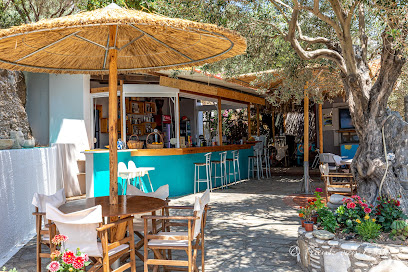
IERA ODOS Art Cafe-Bar
Discover the vibrant nightlife at IERA ODOS Art Cafe-Bar in Pythagoreio, where unique cocktails and a lively atmosphere await.
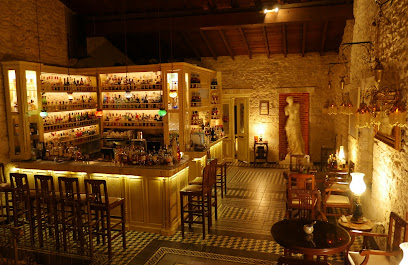
Vagelis Bar
Experience the vibrant atmosphere and stunning sea views at Vagelis Bar, the perfect spot for cocktails and relaxation in Kokkari.
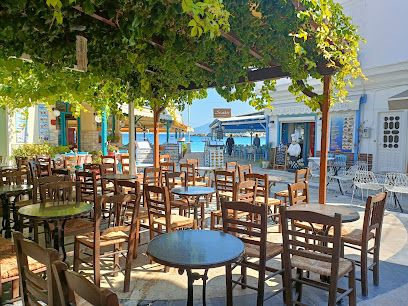
Mezza Volta
Experience the vibrant nightlife of Samos at Mezza Volta, a top cocktail bar known for its innovative drinks and lively atmosphere.
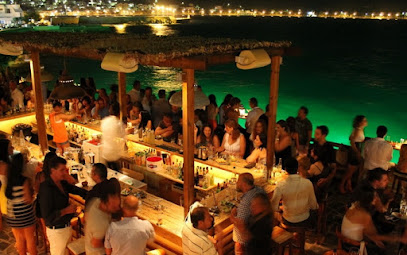
Goal Bar
Experience the vibrant atmosphere and stunning seaside views at Goal Bar in Kokkari, a perfect getaway for relaxation and socializing.
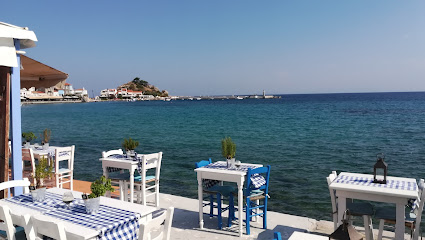
Island Cocktail Bar
Experience the vibrant atmosphere and refreshing cocktails at Island Cocktail Bar in Kambos Marathokampou, a perfect spot for relaxation and fun.
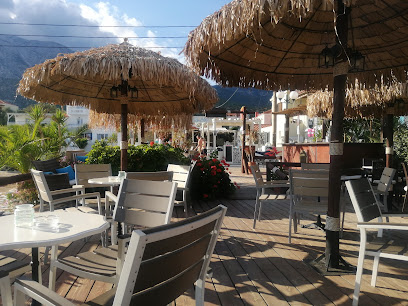
Travel experiences inspired by this city
Explore more travel diariesLocal Phrases
-
- HelloΓεια σας
[Yia sas] - GoodbyeΑντίο
[Adio] - YesΝαι
[Ne] - NoΌχι
[Ohi] - Please/You're welcomeΠαρακαλώ
[Parakalo] - Thank youΕυχαριστώ
[Efharisto] - Excuse me/SorryΣυγνώμη
[Signomi] - How are you?Τι κάνεις;
[Ti kanis?] - Fine. And you?Καλά. Εσύ;
[Kala. Esi?] - Do you speak English?Μιλάς αγγλικά;
[Mila anglika?] - I don't understandΔεν καταλαβαίνω
[Den katalaveno]
- HelloΓεια σας
-
- I'd like to see the menu, pleaseΘα ήθελα να δω το μενού, παρακαλώ
[Tha ithela na do to menou, parakalo] - I don't eat meatΔεν τρώω κρέας
[Den troo kreas] - Cheers!Υγεία!
[Ygeia!] - I would like to pay, pleaseΘα ήθελα να πληρώσω, παρακαλώ
[Tha ithela na plirosso, parakalo]
- I'd like to see the menu, pleaseΘα ήθελα να δω το μενού, παρακαλώ
-
- Help!Βοήθεια!
[Voithia!] - Go away!Φύγε!
[Fyge!] - Call the Police!Καλέστε την Αστυνομία!
[Kaleste tin Astynomia!] - Call a doctor!Καλέστε γιατρό!
[Kaleste giatro!] - I'm lostΈχω χαθεί
[Eho hathi] - I'm illΕίμαι άρρωστος
[Eimai arrostos]
- Help!Βοήθεια!
-
- I'd like to buy...Θα ήθελα να αγοράσω...
[Tha ithela na agoraso...] - I'm just lookingΑπλά κοιτάω
[Apla kitao] - How much is it?Πόσο κοστίζει;
[Poso kostizi?] - That's too expensiveΑυτό είναι πολύ ακριβό
[Afto ine poli akribo] - Can you lower the price?Μπορείτε να μειώσετε την τιμή;
[Boreite na meiosete tin timi?]
- I'd like to buy...Θα ήθελα να αγοράσω...
-
- What time is it?Τι ώρα είναι;
[Ti ora ine?] - It's one o'clockΕίναι μία ώρα
[Ine mia ora] - Half past (10)Μισή (10)
[Misi (deka)] - MorningΠρωί
[Proi] - AfternoonΑπόγευμα
[Apoyevma] - EveningΒράδυ
[Vradi] - YesterdayΧθες
[Hthes] - TodayΣήμερα
[Simera] - TomorrowΑύριο
[Avrio] - 1Ένα
[Ena] - 2Δύο
[Dio] - 3Τρία
[Tria] - 4Τέσσερα
[Tessera] - 5Πέντε
[Pente] - 6Έξι
[Exi] - 7Επτά
[Epta] - 8Οκτώ
[Okto] - 9Εννέα
[Ennea] - 10Δέκα
[Deka]
- What time is it?Τι ώρα είναι;
-
- Where's a/the...?Πού είναι ένα/το...;
[Pou ine ena/to...?] - What's the address?Ποια είναι η διεύθυνση;
[Pia ine i diefthinsi?] - Can you show me (on the map)?Μπορείτε να μου δείξετε (στο χάρτη);
[Boreite na mou deksete (sto charti)?] - When's the next (bus)?Πότε είναι το επόμενο (λεωφορείο);
[Pote ine to epomeno (leoforeio)?] - A ticket (to ....)Ένα εισιτήριο (για ....)
[Ena eisitirio (ya ....)]
- Where's a/the...?Πού είναι ένα/το...;
History of Samos
-
Samos, an island in the eastern Aegean Sea, has been inhabited since the Neolithic period. The earliest settlers were likely drawn to its fertile plains and abundant water sources. Archaeological evidence points to a thriving community engaging in agriculture, pottery, and trade.
-
During the 7th and 6th centuries BCE, Samos experienced a period of significant growth and prosperity. Under the rule of the tyrant Polycrates, the island became a major maritime power. Polycrates' reign saw the construction of impressive public works, including the Heraion, a large temple dedicated to the goddess Hera, and the Eupalinian aqueduct, a remarkable feat of engineering.
-
In the 5th century BCE, Samos played a pivotal role in the Persian Wars. Initially, the island submitted to Persian rule but later joined the Greek coalition led by Athens in the fight against the Persians. After the Greco-Persian Wars, Samos became a member of the Delian League, an Athenian-led alliance of city-states.
-
Following the death of Alexander the Great, Samos fell under the control of various Hellenistic rulers before eventually becoming part of the Roman Empire in 129 BCE. The island's strategic location continued to make it an important hub for trade and culture throughout the Roman period.
-
During the Byzantine era, Samos was an important center of Christianity and saw the construction of numerous churches and monasteries. In the 15th century, the island fell under Ottoman control, leading to significant demographic and cultural changes. Despite this, Samos retained a degree of autonomy and continued to prosper.
-
Samos played a crucial role in the Greek War of Independence against Ottoman rule in the early 19th century. The island declared its independence in 1821, and although it faced several Ottoman attacks, it successfully resisted and contributed to the overall Greek struggle for freedom.
-
Samos remained an autonomous principality under Ottoman suzerainty until 1912, when it was officially united with the Kingdom of Greece. This unification was a significant milestone in the island's history, marking the end of centuries of foreign domination and the beginning of its integration into the modern Greek state.
-
Throughout the 20th century, Samos witnessed significant development and modernization. The island played a role in both World Wars, with its strategic location making it a point of interest for various military operations. Post-war reconstruction and tourism have since transformed Samos into a vibrant and economically stable region.
-
Today, Samos is renowned for its rich cultural heritage, stunning landscapes, and vibrant local traditions. The island's historical sites, such as the Heraion, the Pythagoreion, and the Tunnel of Eupalinos, continue to attract visitors from around the world. Samos' local culture, marked by its music, dance, and cuisine, offers a unique glimpse into the island's storied past.
Samos Essentials
-
Samos is accessible via air and sea. The island has its own airport, Samos International Airport 'Aristarchos of Samos' (SMI), which receives flights from Athens and various European cities. Alternatively, you can take a ferry from Piraeus (Athens' main port) or other nearby islands like Ikaria and Patmos. Ferries run frequently during the summer months, and the journey from Piraeus typically takes around 12-14 hours.
-
On the island, you can use public buses, taxis, or rent a car or scooter to get around. The public bus system is fairly reliable and covers most of the island, including major towns and beaches. Taxis are available but can be expensive for longer trips. Renting a car or scooter provides the most flexibility for exploring the more remote areas of Samos.
-
The currency used in Samos is the Euro (EUR). Credit and debit cards are widely accepted in most restaurants, hotels, and larger shops. However, it is advisable to carry cash, especially when visiting smaller villages, local markets, or remote areas. ATMs are available in major towns like Vathy, Pythagoreio, and Karlovasi.
-
Samos is generally considered a safe destination for tourists. Petty crimes such as pickpocketing can occur, especially in crowded areas, so it is always advisable to stay vigilant and keep an eye on your belongings. There are no specific high-crime areas targeting tourists, but it is best to avoid poorly lit areas at night.
-
In case of emergency, dial 112 for immediate assistance, which is the European emergency number. There are medical facilities available in the major towns like Vathy and Karlovasi. It is recommended to have travel insurance that covers medical emergencies. Pharmacies are accessible and can provide over-the-counter medications for minor health issues.
-
Fashion: Do dress modestly, especially when visiting religious sites. Avoid overly revealing clothing. Religion: Do respect local customs and traditions. Always cover your shoulders and knees when entering churches and monasteries. Public Transport: Do be respectful and give up your seat to elderly passengers. Don’t eat or drink on public transport. Greetings: Do greet people with a friendly 'Kalimera' (Good morning) or 'Kalispera' (Good evening). Eating & Drinking: Do try local delicacies and accept food offerings graciously. Don’t refuse hospitality, as it is considered impolite.
-
To experience Samos like a local, visit the small villages such as Kokkari and Manolates, where you can enjoy traditional Greek hospitality. Engage with locals, as they are often friendly and willing to share stories about the island's history and culture. Don’t miss visiting the ancient Heraion temple and the Pythagoreion, both UNESCO World Heritage Sites. For a unique experience, take a hike in the lush forests of Ambelos or enjoy a wine-tasting tour at one of the island’s vineyards.
Trending Landmark in Samos
-
Livadaki Beach bar Samos
-
Potami Waterfalls
-
Navagos Beach Bar
-
Tunnel of Eupalinos
-
The Blue Street
-
Pythagoras Cave
-
Archaeological Site at Heraion of Samos
-
Panagia Spiliani Monastery
-
Archaeological Museum of Vathy, Samos
-
Mare Deus Beach
-
Statue of Pythagoras
-
Archaeological Museum of Pythagoreion
-
Kerveli Beach
-
Samos Wine Museum
-
Mourtiá Beach
Nearby Cities to Samos
-
Things To Do in Kusadasi
-
Things To Do in Ephesus
-
Things To Do in Izmir
-
Things To Do in Bodrum
-
Things To Do in Kos
-
Things To Do in Mykonos
-
Things To Do in Marmaris
-
Things To Do in Rhodes
-
Things To Do in Pamukkale
-
Things To Do in Santorini
-
Things To Do in Pyrgos
-
Things To Do in Fethiye
-
Things To Do in Canakkale
-
Things To Do in Athens
-
Things To Do in Heraklion

















